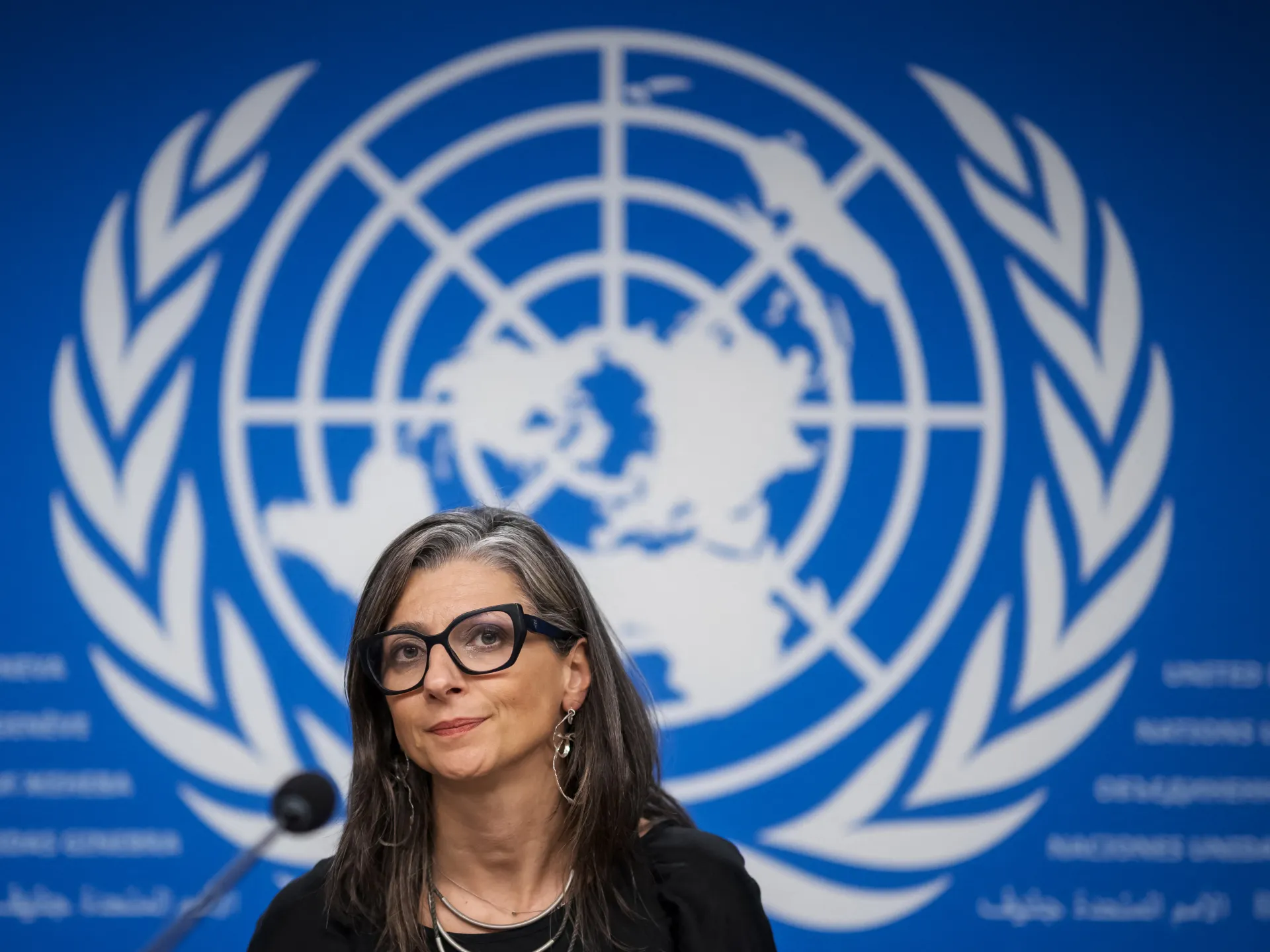Over 100 artists for Palestine back UN’s Albanese after resignation calls | United Nations News
France and Germany call for UN special rapporteur for occupied Palestinian territory, Francesca Albanese, to step down over her critical comments.
More than 100 prominent artists – including musicians, actors and writers – have signed an open letter in support of the United Nations special rapporteur for occupied Palestinian territory who faces international calls to step down.
In a letter from the group Artists for Palestine on Saturday, the signatories offered “full support to Francesca Albanese, a defender of human rights and, therefore, also of the Palestinian people’s right to exist”.
Recommended Stories
list of 4 itemsend of list
“There are infinitely more of us in every corner of the Earth who want force no longer to be the law. Who know what the word ‘law’ truly means,” the letter said.
Among the supporters were actors Mark Ruffalo and Javier Bardem, Nobel Prize-winning author Annie Ernaux and British musician Annie Lennox.
At last week’s Al Jazeera Forum, Albanese, an outspoken critic of Israel’s genocidal war on Gaza, said “we as humanity have a common enemy”, but a fake video that was later debunked had her accusing Israel of being the “common enemy”.
She later explained in a social media post she was referencing “the system that has enabled the genocide in Palestine” as the “common enemy”.
‘Crush any criticism of Israel’
Still, European countries, including France and Germany, continue to call for her removal.
On Tuesday, a group of French lawmakers sent a letter to Foreign Minister Jean-Noel Barrot condemning Albanese’s remarks as “anti-Semitic”. A day later, Barrot called on her to step down, saying France “unreservedly condemns the outrageous and reprehensible remarks”.
On Thursday, German Foreign Minister Johann Wadephul called her position “untenable”.
Frank Barat, an author and film producer, said French President Emmanuel Macron and Barrot have repeatedly said they support international law “while the facts show the complete opposite”.
Albanese has highlighted for the past two years that under international law, “states have a duty to act to prevent genocide, and they’ve been failing completely” in Gaza, Barat told Al Jazeera.
“Because Francesca has been highlighting this hypocrisy, she’s been targeted by most Western governments. The political agenda of these governments is to crush any criticism of Israel. We’ve seen it in the streets of Europe. We’ve seen it in the streets of the US,” he added.
People who have spoken out against Israel’s war on Palestine are “criminalised while the perpetrators of genocide continue to be let go“, Barat said.
Marta Hurtado, a spokesperson for the Office of the UN High Commissioner for Human Rights, said at a news briefing on Friday that her colleagues are “very worried” about the backlash against Albanese.
“We are concerned that UN officials, independent experts and judicial officials are increasingly subjected to personal attacks, threats and misinformation that distracts from the serious human rights issues,” Hurtado said.
Nearly 600 Palestinians have been killed by Israel in Gaza since an October 10 “ceasefire” alone. At least 72,000 Palestinians have been killed and 171,000 wounded in Israel’s war since October 2023
